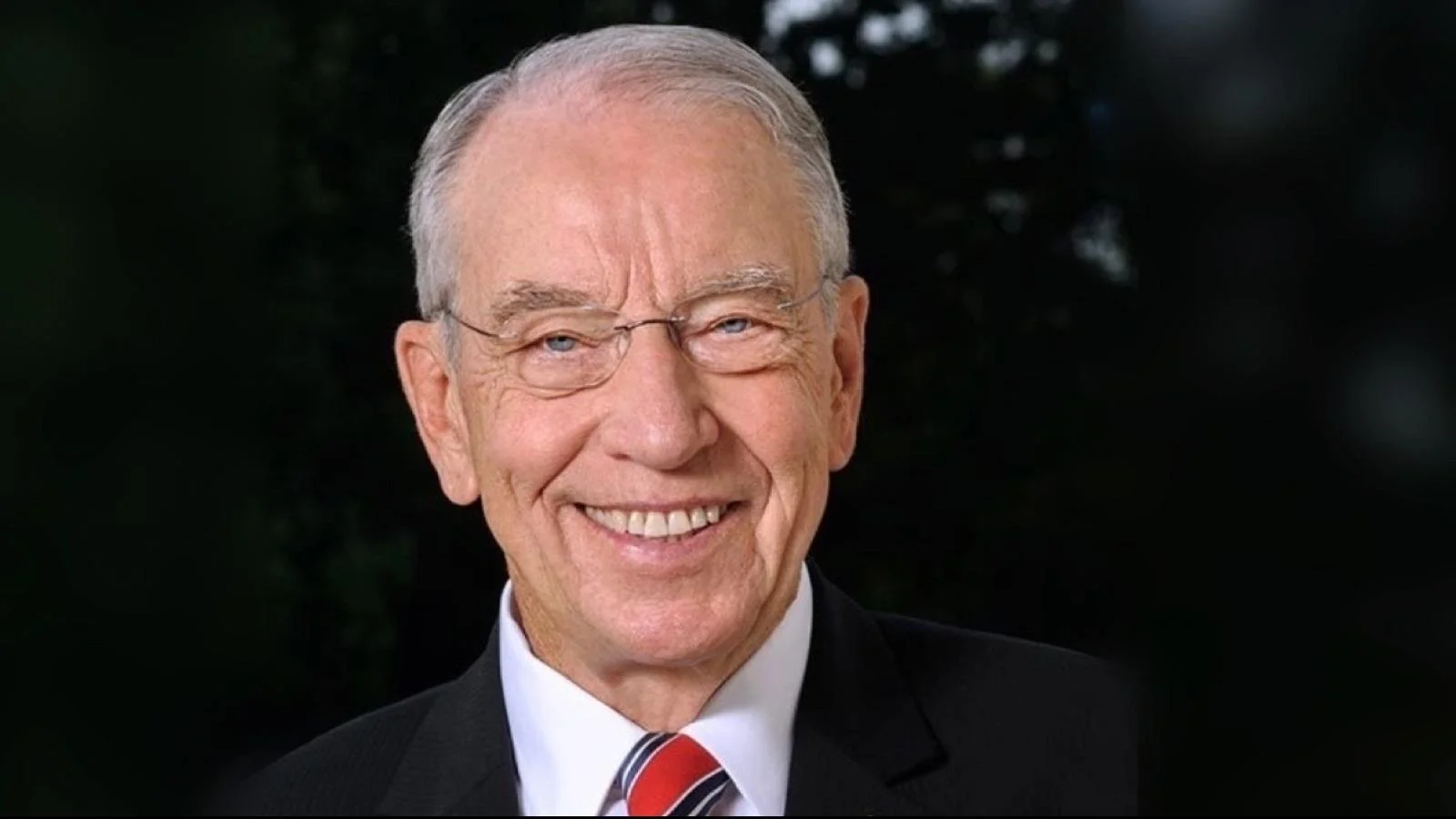Senator Chuck Grassley | Official U.S. Senate headshot
Senator Chuck Grassley | Official U.S. Senate headshot
Senator Chuck Grassley, the only grain farmer in the United States Senate, recently addressed concerns about rising costs faced by family farmers. He held a Judiciary Committee hearing to investigate how consolidation in the agricultural sector affects input prices and market competition.
Grassley explained his motivation for convening the hearing: "As the only grain farmer in the United States Senate, I’m honored to advocate on behalf of family farmers who are wrapping up the harvest season and looking ahead to next year’s crop. Today U.S. farmers are feeling crushed with uncertainty as they make plans to purchase inputs and take out lines of credit to pay the bills and stay afloat. At my annual county meetings, local co-ops and in communications with my office, Iowa farmers tell me they’re feeling pinched by matters out of their control, including high input costs, high borrowing costs and global trade uncertainty. I held the committee hearing to look under the hood of market concentration in the ag sector and examine how it drives up the cost of production for family farmers and impacts food security for American families. From fertilizer to seed and equipment manufacturing, agribusiness consolidation among global conglomerates calls for a robust effort to promote competition and strengthen transparency to protect the livelihoods of farmers and foster a resilient food production system."
He further emphasized his ongoing commitment: "America’s farm families take on the risk, put in the work and feed our nation and much of the world. As Iowa’s senior U.S. Senator, I’ll continue working to address the root causes contributing to soaring prices for farm inputs to strengthen the viability of the family farm for generations to come. Empowering America’s farmers to continue to do what they love and do what they do best will help strengthen rural communities and our nation’s food security. I’ve led the charge in Congress to beef up enforcement of anticompetitive practices and led bipartisan scrutiny of agricultural mergers. Nearly a decade ago, I referred to the consolidation wave in agribusiness as a tsunami. Left unchecked, concentration can lead to exclusionary, anticompetitive practices that impact farmers and the food supply chain. For example, I’m pushing to inject more price transparency in the fertilizer industry. The U.S. Department of Agriculture (USDA) estimates fertilizer purchases will account for 36% of a corn grower’s operating costs in 2025. My Fertilizer Research Actwould require the USDA to conduct a study on competition and trends in the fertilizer market that impact price."
During testimony at his hearing, witnesses shared firsthand accounts from Iowa agriculture professionals.
Noah Coppess, who farms full-time near Stanwood in Cedar County while also running an agricultural retail business selling pesticides and fertilizers locally, discussed challenges caused by consolidation: "In his testimony, he said consolidation has significantly limited marketing opportunities for farmers, with four big meatpackers dominating beef, pork and poultry processing." Coppess noted that large-scale mergers have resulted in less transparent pricing structures as well as fewer choices when buying seed or fertilizer products.
He pointed out financial pressures facing producers: "According to USDA reports, net farm income in Iowa fell 53% in 2024, from nearly $14.9 billion to $7 billion." Farmers often cannot pass increased production costs onto buyers because commodity prices remain low.
John Latham operates an independent seed business started by his grandfather over 75 years ago in Franklin County. He testified about competitive disadvantages facing smaller firms: "He testified independent businesses like theirs are going out of business because of the powerful and 'predatory' anticompetitive practices of multi-national companies." Latham compared certain corporate tactics restricting generic options through intellectual property law abuses with those seen elsewhere such as pharmaceuticals.
Latham described penalties imposed on small operators through restrictive rebates or mandatory data-sharing agreements required by larger companies; he also cited technology royalty increases between 40%–80% over four years.
Grassley stated that agriculture remains crucial not just for farming families but also related industries across Iowa such as agrochemicals or meat processing jobs.
The senator continues legislative efforts aimed at reducing input expenses—for example advocating removal of duties limiting access to Moroccan phosphate—and praised recent federal steps towards greater coordination between agencies on antitrust issues within agriculture markets.
"In September," Grassley noted,"Assistant Attorney General Abigail Slater announced a partnership with USDA" focused on strengthening oversight against unfair practices impacting American producers.




 Alerts Sign-up
Alerts Sign-up